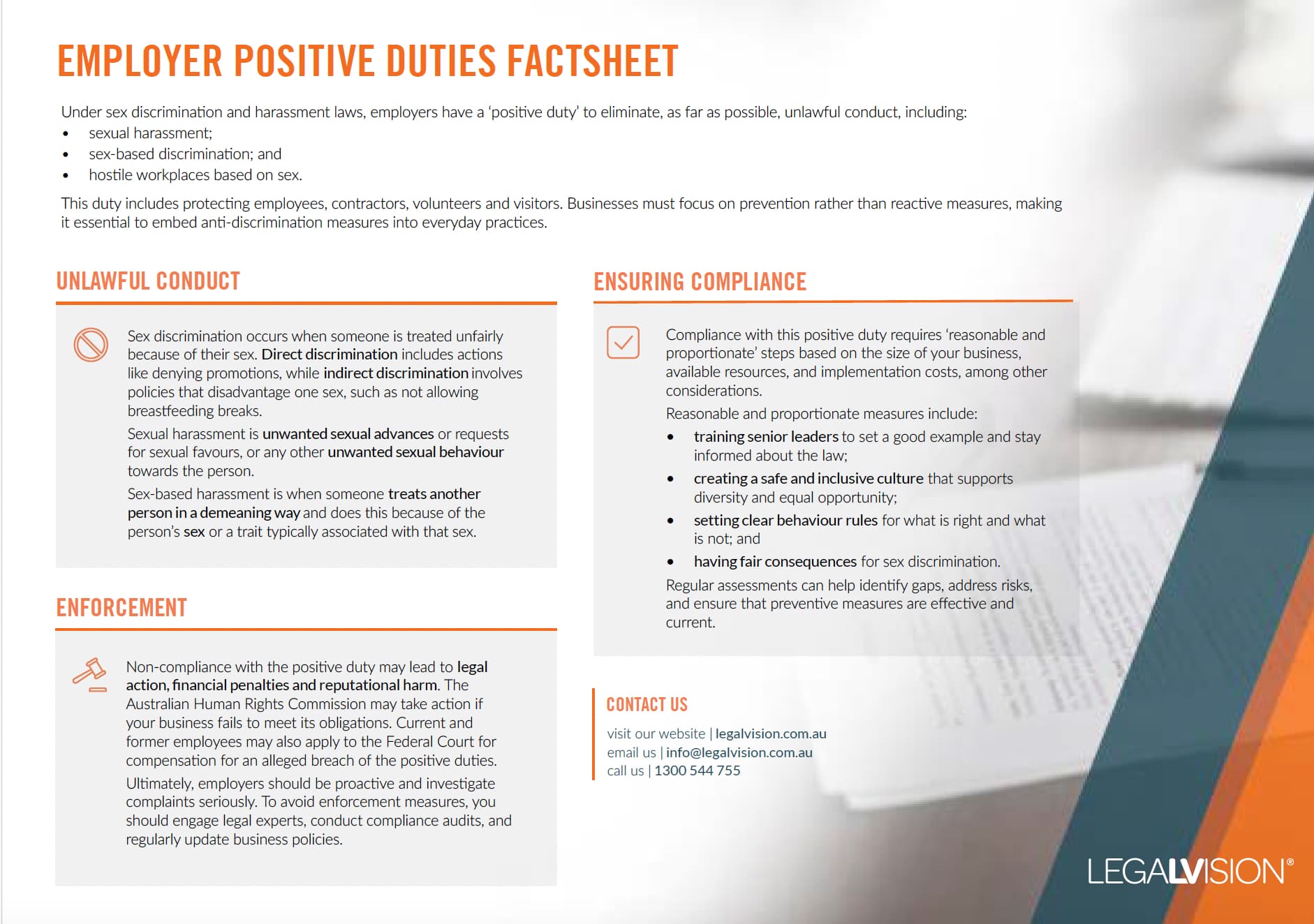In Short
- Employers have a legal obligation to ensure the health and safety of their employees by providing a safe work environment.
- This duty includes taking reasonable steps to prevent foreseeable risks that could lead to injury or harm.
- Failure to uphold this duty can result in legal consequences, including liability for any injuries employees sustain due to negligence.
Tips for Businesses
Regularly assess workplace safety protocols to identify and mitigate potential hazards. Implement comprehensive training programs to educate employees on safety procedures. Maintain open communication channels for staff to report safety concerns promptly. Proactive management of workplace safety not only fulfils legal obligations but also promotes a healthier, more productive work environment.
The term ‘duty of care’ is commonly used in various contexts. Firstly, it is important to understand the concept of ‘implied duty of care’. Simply put, this duty requires employers to take action to prevent foreseeable risks of injury to their employees. These duties are not explicitly stated in an employment contract or any other document but still exist. This article will guide you through the four duties of the implied duty of care, so you can better understand what it entails and its implications for your business.
The Duty to Provide Competent Staff
One of the obligations of the implied duty of care is to provide competent staff. This may involve:
- ensuring that all staff are properly trained in their respective roles;
- selecting and hiring staff with the necessary know-how and qualifications to fulfil their responsibilities;
- disciplining or dismissing employees who engage in unsafe or dangerous conduct; and
- ensuring that all employees are well aware of occupational workplace dangers.
To fulfil this responsibility, it is crucial to meticulously select individuals with the requisite skills and experience during the hiring process, mainly when the business involves the operation of heavy machinery or similarly hazardous equipment.
The Duty to Provide a Safe Place to Work
Hiring competent staff fulfils only the first part of your implied duty of care. The second part mandates that you provide staff with a safe working environment.
Firstly, you should ensure that the physical structures in the workplace are safe. This includes the:
- building;
- restroom facilities;
- access points; and
- break rooms.
If your staff work from home, you should still take measures to minimise safety risks in their homes. This means you should:
- provide guidance on what a safe home office looks like;
- allow staff to borrow any necessary equipment, including safety equipment; and
- provide your employees with guidance about safe ergonomic practices.
In addition to ensuring safe physical structures, you must also ensure that you provide an environment free from:
- harassment;
- intimidation;
- vilification; and
- bullying.
The Duty to Provide Proper and Adequate Materials
The third duty that comes under the implied duty of care is the duty to provide proper and adequate materials. This is closely associated with the duty to provide a safe workplace and demands that you maintain a safe plant and equipment.
For example, you should ensure that you:
- have machinery regularly inspected;
- take corrective action when danger is identified;
- ensure staff operating machinery are adequately trained; and
- provide adequate safety uniforms, such as gloves or safety glasses, where relevant.

This fact sheet outlines employers’ ‘positive duty’ under sex discrimination laws, highlighting proactive measures to prevent unlawful conduct.
The Duty to Provide a Safe System of Work and Supervision
Finally, you must coordinate work activities in such a way as to create a safe system of work. The system must be monitored, and adequate supervision must be provided. What this entails will depend entirely upon the:
- type of work being undertaken;
- relevant skills of the employees; and
- broader factual circumstances.
Ultimately, you will need to make an appraisal on a case-by-case basis.
Key Takeaways
As an employer, duty of care requires you to undertake actions to avoid foreseeable risks of injury befalling your employees. To break this down further, this implied duty of care requires you to provide:
- competent staff;
- safe place to work;
- proper and adequate materials; and
- safe systems of work and supervision.
If you need assistance understanding your duty of care as an employer, our experienced employment lawyers can assist as part of our LegalVision membership. For a low monthly fee, you will have unlimited access to lawyers to answer your questions and draft and review your documents. Call us today on 1300 544 755 or visit our membership page.
Frequently Asked Questions
As an employer, your implied duty of care requires you to take action to avoid foreseeable risks of injury befalling your employees. This implied duty of care requires you to provide competent staff, a safe place to work, proper and adequate materials and safe systems of work and supervision.
An implied duty of care refers to a duty of care that contracts do not explicitly state. Although these duties may not be provided for in a contract or any other document, this does not mean that they do not exist.
We appreciate your feedback – your submission has been successfully received.











